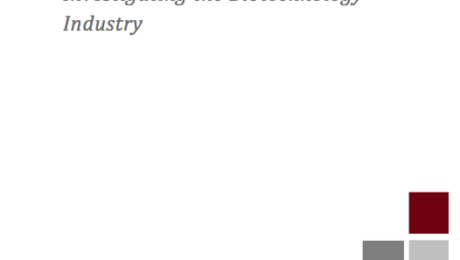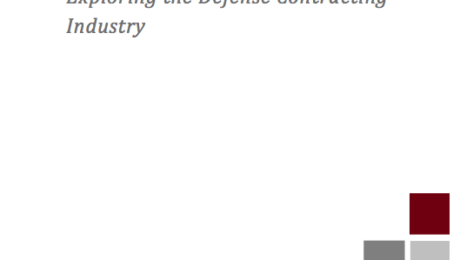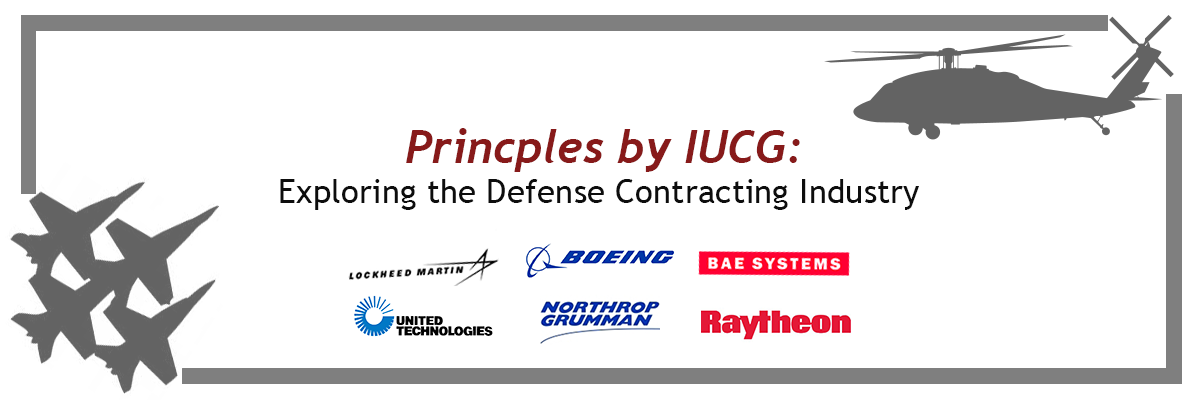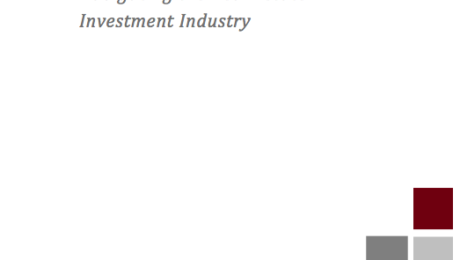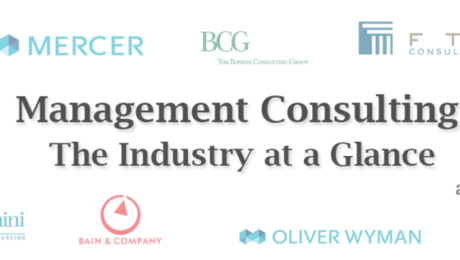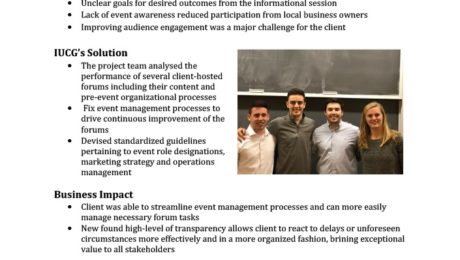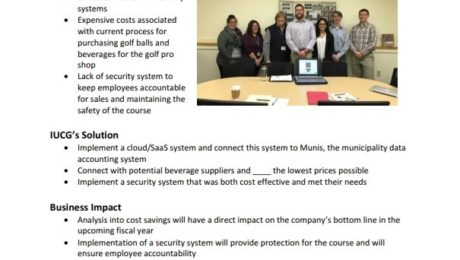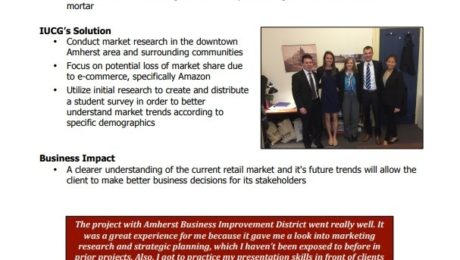Principles by IUCG: Investigating the Biotechnology Industry

Biotechnology is an expanding industry that works to develop new drugs and products that will shape the medical and agricultural landscape. Please find our latest industry report, Investigating the Biotechnology Industry, below which details our thoughts and insights.
- Published in Publication
Principles by IUCG: Exploring the Defense Contract Industry
- Published in Publication
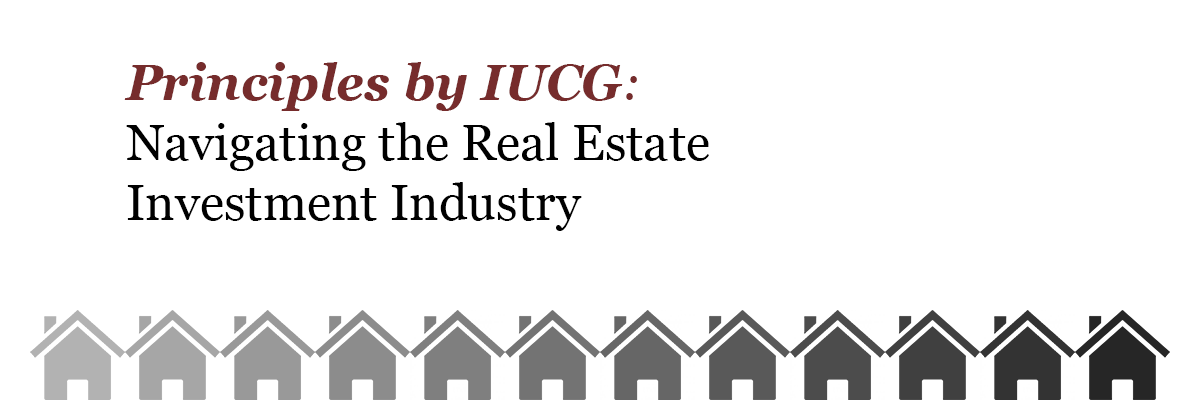
Please find our publication detailing the real estate investments industry!
- Published in Publication
Principles by IUCG: Mastering the Case Interview

Please find our publication detailing an ideal approach for the case interview process, targeting management consulting positions.
- Published in casestudy, Frontpage Article, News, Publication, Uncategorized, Whitepaper
Fall 2016 Semester Review
Please find the Semester Review below along with the option to download a pdf version.
- Published in Frontpage Article, Publication, Uncategorized
Management Consulting: The Industry at a Glance
What is consulting?
The purpose of a consultant is to help provide recommendations for organizations to improve their performance. Consulting services can range from providing organizational change management assistance to the development of coaching skills, process analysis, technology implementation, strategy development, and operational improvement services. There are two distinct types of consultants: industry consultants and career consultants. Industry consultants typically possess over ten years of experience in a particular field, while career consultants spend their career developing the types of skills that consultants use, such as research, presentation, and analytical skills.
What does an entry-level consulting position look like?
Recent graduates of undergraduate programs often choose to pursue an entry-level consulting position. Entry-level consultants are not considered experts, and therefore fall into the career consultant category. Regardless of the consulting firm or industry, entry level roles are often responsible for creating PowerPoint slide decks to present to clients, conducting interviews, doing primary and secondary research, and otherwise assisting the engagement team. Entry level consultants may also have the opportunities to analyze relevant data or other information in an effort to better understand a client’s current state and provide recommendations for the future. While some of these functions may not be as glamorous as others, all are essential to a successfully operating team of consultants.
What are the different types of consulting?
The most common type of consulting is management consulting, and it can be split into several different branches, as depicted in the graphic below:
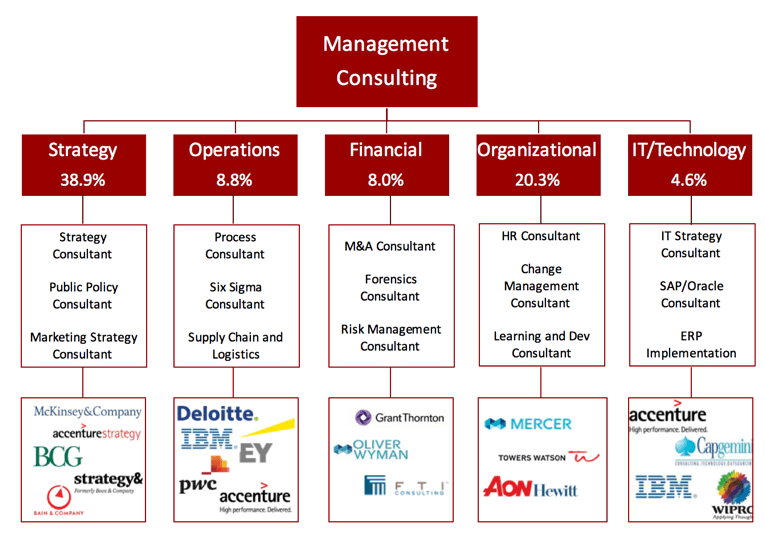
Do you want to be a consultant?
Individuals who thrive as consultants are usually driven and analytical. Consultants typically do well in high pressure environments, and are passionate about testing ideas and serving clients. Consultants often have strong people skills and are able to be flexible in continuously changing circumstances. No two days are the same—consultants are always learning and are constantly challenged by their work. While the consulting industry is not always easy to enter, it can offer extremely rewarding careers that allow individuals to learn a great deal in a short period of time. If these concepts sound exciting, consulting may be a potential career option for you!
- Published in Publication
Driving Stakeholder Value Through Process Optimization And Improvement
- Published in casestudy, Uncategorized
IUCG: Internship Edition
Now that summer has come and gone, we decided to take a closer look into how IUCG’s members spent the past few months. This year’s group participated in a diverse array of programs that’s spanned several industries. We spoke with four group members about their experiences.
Brian Campbell (’19)
Internship: MassMutual Enterprise Information Risk Management
Main projects/ responsibilities: The first four weeks were centered around figuring out a way to better implement their security monitoring software within the entire risk management department, while the latter half of the program focused on overhauling their entire supplier risk program.
Key Takeaways: Brian felt that the most beneficial skill he gained was the ability to be comfortable in an environment with unfamiliar people, but still ask questions about the work and have the confidence to give an objective opinion. In general, he was blown away by the opportunity to get to see how a large corporation works from the inside.
IUCG’s Impact: IUCG provided Brian with experiences working on teams, and developing proposals.
Cole Gladstone (’18)
Internship: Zurich Insurance Distribution and Regional Management Intern
Main projects/ responsibilities: The main project that Cole worked on was a feasibility study into a market that Zurich hadn’t previously insured. His primary task was to look into the market to see if it would be advisable for Zurich to enter the space. After he completed his research, he worked with company executives and senior vice presidents to put together a go-to-market strategy.
Key Takeaways: Cole realized that communication is key when working in a big company. Failure to communicate effectively can be the largest limiting factor when it comes to the success of a project, especially in regards to development. He discovered this from personal experience after he began a new assignment without updating his managers on his previous project.
IUCG’s Impact: Cole approached projects at work in a similar manner with which he would approach a case study from IUCG. The strategy-based thinking that he developed while in the group aligned with that of internal consulting departments within large companies.
Kara Knights (’17)
Internship: Grant Thornton Business Advisory Services Intern
Main projects/ responsibilities: Kara gained experience working on project management for an IT implementation for the duration of the summer. She provided all of the support services including updating status and incident reports, and sending them out to management. In addition, Kara helped with change management by updating handbooks with new procedures for the new system.
Key Takeaways: During her internship, Kara learned how to interact with a client on a daily basis, as she spent most of her time on-site. She quickly discovered the importance of being personable, while remaining professional.
IUCG’s Impact: Going into the internship Kara felt that IUCG gave her the proper knowledge and expectations of business consulting, as it can be very different from an industry position.
Sara Clemente (’17)
Internship: EY’s Risk Advisory Program
Main projects/ responsibilities: During her time at EY, Sara worked on three separate engagement teams performing risk testing, attending meetings and process walkthroughs, assisting on trainings and working on client deliverables.
Key Takeaways: One thing that stood out to Sara about EY was the level of mentorship that she experienced. Whether it was from an executive director, her formal counselor, a peer mentor, or really anyone in the office, she saw the culture as open and honest. As a final comment on her experience Sara felt that, “Finding a cultural fit is a bigger deal than some people really acknowledge. A big firm is going to have something that you want to do, but it’s about finding that cultural fit.”
IUCG’s Impact: Sara felt that IUCG provided her with a vital set of soft skills, including the abilities to think critically, work with teams of a similar size, and ask effective questions in a client meeting.
- Published in Publication
New Systems And Suppliers: Improving Profitability And Efficiency
- Published in casestudy, Uncategorized
Implementing Market Research To Identify Population Preferences
- Published in casestudy, Uncategorized

